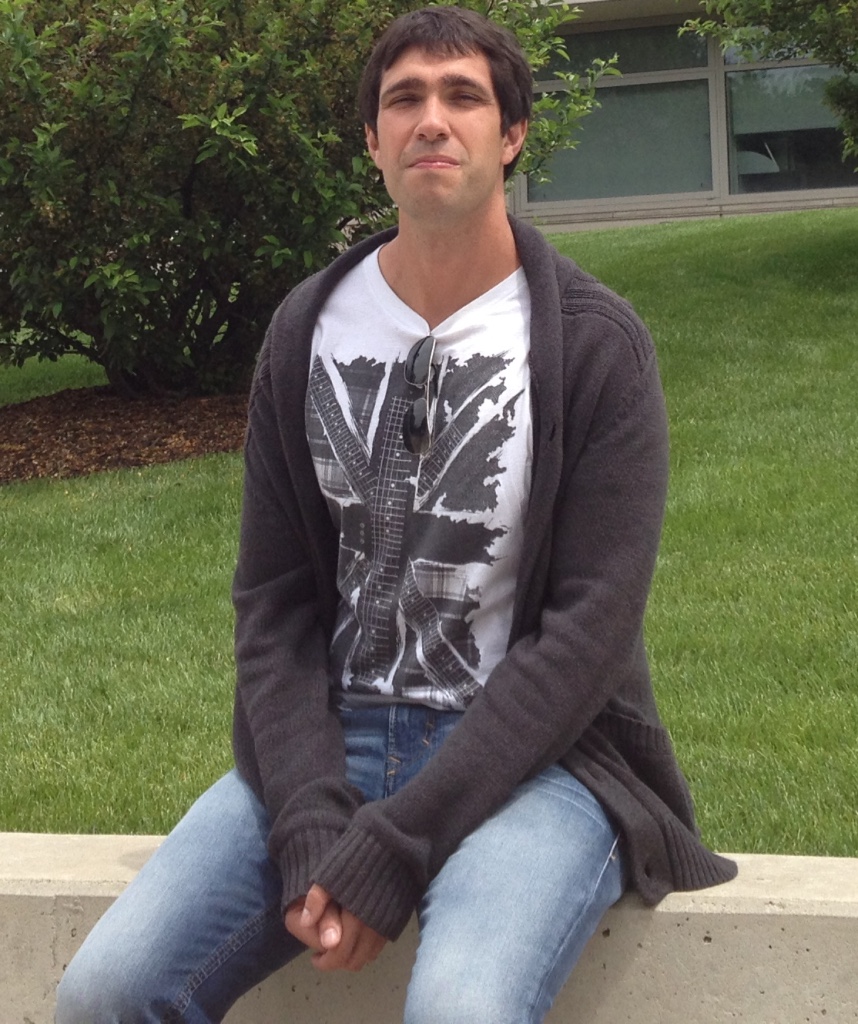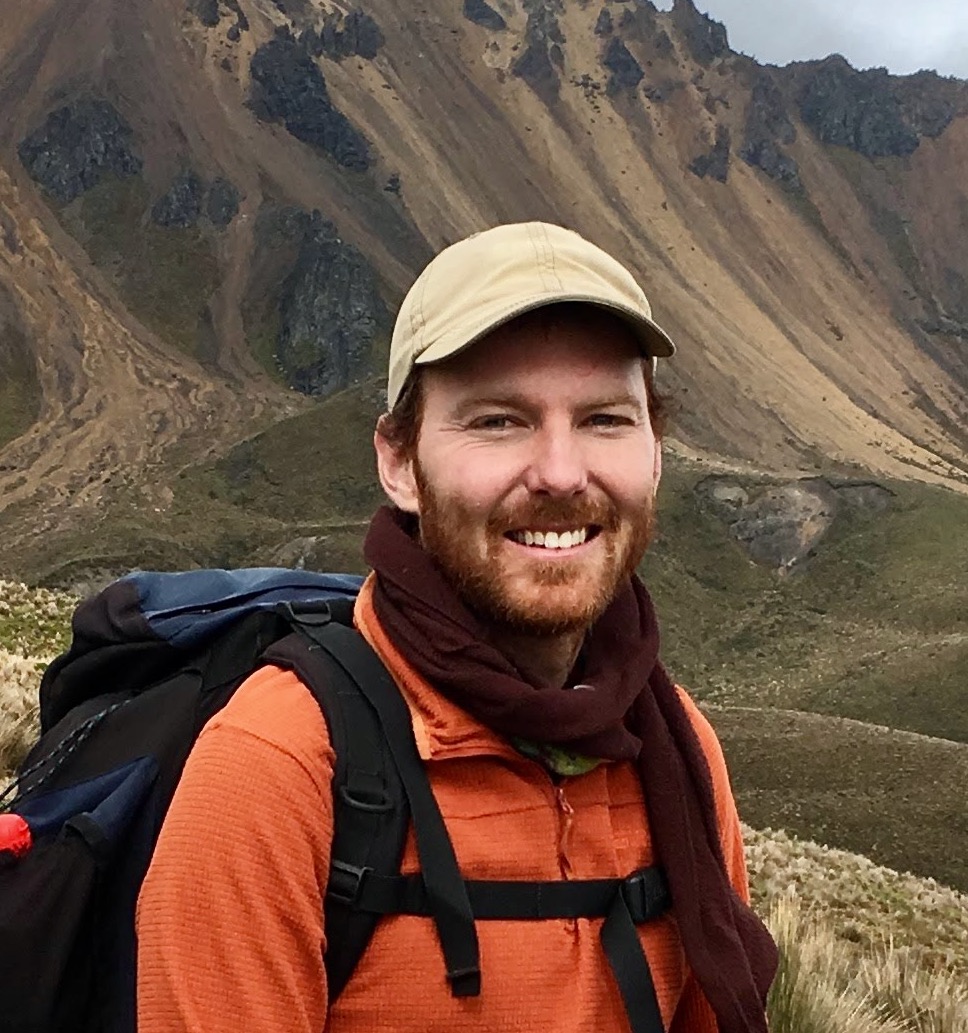
Bruno Biasetto
Visiting Researcher
About Bruno Biasetto
Bruno Biasetto is currently a Postdoctoral Researcher for the History Department at York University. History PhD at Georgetown University (USA), with an emphasis in economic history of Latin America (2016). Adjunct Professor at the History Department of the Pontifical Catholic University of Rio Grande do Sul (2017). Market analyst at Sarria Research for European retail and oil market sectors (2018). Author of several chapters of books and articles, he currently researches environmental/economic history of Latin America (19th and 20th centuries) and global history of oil and energy (20th century).
Country(ies) or Region(s) of Specialization: Brazil, Argentina, United States, Canada and Uruguay.
Keywords: Environmental history, economic history, 20th century, oil and finance.

Patrick Clark
Postdoctoral Fellow, Department of Political Science and Global Development Studies, Saint Mary's University, Nova Scotia
Visiting Researcher
Research Cluster: Migration, Labour, and Political Economy
About Patrick Clark
Patrick Clark is a Visiting Researcher at CERLAC and a Postdoctoral Fellow in the Department of Political Science and Global Development Studies at St. Mary’s University in Halifax, Nova Scotia. In his current position at St. Mary’s, he is researching the intersection between climate change and international trade agreements in a project led by University Research Professor Gavin Fridell. He completed his PhD in Political Economy at the Department of Political Science at Carleton University in Ottawa. His doctoral dissertation analyzed processes of sustainable agricultural transition led by small farmer organizations and co-operatives and public policies for Ecuador’s rural development during the Rafael Correa government between 2006-2017. Between 2021 and 2024, he held an appointment as a Sessional Assistant Professor in the Business and Society program in the Department of Social Science at York, during which he also served as a member of the CERLAC executive. In addition to current research on the international trade dimensions of the green transition, he is also engaged in several ongoing research and writing projects, including a forthcoming co-authored book with Edward Elgar Press on the history of the Fair Trade movement. He is also preparing an article on the re-emergence of smallholder agricultural co-operatives in Peru after the economic liberalization policies implemented in the 1990s. In the longer term, he would like to continue researching the comparative political economy of the Andean countries and the role of non-state regulation in driving sustainability transitions.
Country(ies) or Region(s) of Interest: Ecuador, Peru, Venezuela
Keywords: Rural development, social economy and social innovation, Ecuador, Peru, neo-structuralism/ neo-developmentalism in Latin America, comparative politics and Left political parties, state-society relations, economic sociology and anthropology.

Dolores Figueroa
Post-Doctoral Fellow, CIESAS, Mexico
Associate Fellow, Visiting Researcher
About Dolores Figueroa
Generally speaking my academic interests are focused on the gender politics of indigenous movements, the political participation of indigenous women in the public realms and the subjective construction of indigenous leaders as mediators of their communities in different levels of governance.
My analytical work is located at the intersection of debates on indigenous women’s identity politics in Latin America, transnational feminism, and the politics of the adoption of human rights discourse at global and local levels. I have been interested during the last years on exploring the correlation of Indigenous women transnational activism and the proliferation of learning experiences for building leadership capacities. In particular I analyze the structure of opportunities that have forged the networking process of indigenous women at the continental level and how the political leverage of indigenous women leaders has been instrumental in its consolidation. In the context of Mexico I have been involved in process of strengthening capacities of local women leaders who want to participate in electoral and community politics alike.
Country(ies) or Region(s) of Specialization: Mexico, Nicaragua and transnational spaces created to consolidate Indigenous women´s regional organizations
Keywords: Gender, human rights, justice, indigenous identity politics, transnational activism and political participation

Thais Henriques Dias
Visiting Researcher
Research Cluster: Environment, Extraction, and Territory
About Thais Henriques Dias
Thaís Henriques Dias is a Doctoral Fellow in Sociology and Law at Universidade Federal Fluminense, Rio de Janeiro, Brazil and a Visiting Scholar in the Faculty of Environmental and Urban Change at York University.
PhD in progress in Sociology and Law at the Federal Fluminense University (UFF), focusing on Canadian-registered mining companies in Brazil. I am a researcher at the Fluminense Land Observatory (OBFF) and the Laboratory of Environmental Justice (LAJA), both affiliated with the UFF, in Rio de Janeiro, Brazil. I am also part of the editorial team of the Interdisciplinary Journal of Sociology and Law – Confluences, since 2022 (https://periodicos.uff.br/confluencias/about).
In 2024, I became an associate with the Canadian Association for Latin American and Caribbean Studies (CALACS) and a Visiting Scholar in the Faculty of Environmental and Urban Change (EUC) at York University, where I am doing a “sandwich” Ph.D. program supported by a PDSE/Capes scholarship. My research in Canada has been supervisioned by Prof. Dr. Patricia Elaine Perkins (EUC/York University), Dr. Judith Marshall (CERLAC) and Prof. Dr. Alain Deneault (Université de Moncton).
I have been involved in research projects related to socioenvironmental conflicts, disasters, and mining, with an experience in socio-legal research, teaching, and extension projects in education and popular legal assistance. I have also collaborated with Third Sector organizations such as the Institute of Alternative Policies for the Southern Cone [Instituto PACS], Amazon Watch, Beyond Extraction, as well as civil society coalitions like the National Committee in Defense of Territories Against Mining in Brazil.
Country(ies) or Region(s) of Specialization: Brazil
Keywords: Mining, socioenvironmental conflict, disasters

Margie Rauen
Professor, Graduate Program of Education of the Midwestern State University (UNICENTRO) in Paraná, Brazil
Associate Fellow, Visiting Researcher
About Margie Rauen
Dr. Margarida Gandara Rauen goes by the art name Margie Rauen (she/her) and is a faculty member on leave from the Graduate Program of Education of the Midwestern State University (UNICENTRO) in Paraná, Brazil. As a self-funded guest at CERLAC, Margie plans to carry on research about intercultural performances and identities, be it by relying on library resources or through exchange with CERLAC associates and/or Canada-based Latin American artists with similar interests. Margie has initially been hosted by Dr. Honor Ford-Smith.
As a senior researcher, my works encompass gender, ethnic-racial categories, participatory poetics and intercultural approaches to creative processes and to curriculum redefinition from the stance of intersectional feminism. While my position is vexed as a white woman with European ancestry, I embraced creative processes and teaching practices that foster peace, equity, respect, having learned from and shared with the communities that welcomed me. As a professor at UNICENTRO, I have taught required courses covering theoretical paradigms, post-structuralist and feminist theory in research methodology, in addition to elective ones on several topics, namely: creative processes in theatre and performance art; thinking beyond white feminism, on the inclusion of relevant authors who have remained invisible due to androcentrism and eurocentrism in education; the intersectional lens for fostering equity in the curriculum.
I earned a Master of Arts and a Ph.D. in English/Theater (MSU, USA, 1987), having developed post-doctoral projects as a Folger Institute Fellow (USA, 1993, 1997, 2003). I was a Global Shakespeare Fellow at the University of Warwick, UK, in 2017. As a director and playwright, my works Ofélias/A-void-ing, Juliets, and Shadows of Sycorax illustrate the interest I took in makeovers of Shakespearean characters to discuss the condition of marginalized women. These plays were done in an art gallery, in 13 different community venues, and in a prison (aa forum theater immersion with teenager girls), respectively. Such site-specific performances, forum theater/theater of the oppressed, and outreach workshop projects in community venues since the 1990s in Brazil have been funded by the Curitiba Cultural Foundation, as well as sponsored by my home institution UNICENTRO in its Irati and Guarapuava campi. My current work-in-process Performing_names was conceived during residencies at Artscape Gibraltar Point, Toronto Island, Canada in 2018 and 2019 (there is an entry in the Emergency Index – Vol. 8, Ugly Duckling Presse, New York/USA, 2019, p. 298–299). Since then, it has been a humbling experience to expand Performing_names and address intersectional issues in herstories of Black women and Indigenous women.
My publications in Brazil, the United Kingdom, France and Germany feature articles about gender studies applied to creative processes and non-hegemonic art teaching. Earlier scholarship from a post-colonial stance regarding the political use of William Shakespeare as a canonical author in Brazil is available in articles per Oxford, Cahiers Élisabéthains, and Delaware/Fairleigh Dickinson Presses. I also am the author of Interactivity, scene control and the authorial agency of the audience (University of Bahia Press, 2009), a collection of essays about participatory poetics. I have served as reviewer and guest-editor of prestigious Brazilian academic journals (Ilha do Desterro – UFSC-Federal Univ. of Santa Catarina; Urdimento; Education, Arts and Inclusion – UDESC- State University of Santa Catarina). I am presently editing a new collection of essays on notable women who have not enjoyed the visibility they deserve in the fields of art, literature and science in my home state of Paraná (forthcoming in 2023).
A personal website is available at: https://margierauen.com/index.html
For a CV online, access https://orcid.org/my-orcid?orcid=0000-0002-2466-339X
A video that features a creative process developed with my art students and was screened at the 2016 Annual Conference of the American Society for Theatre Research can be watched at <https://www.youtube.com/watch?v=a1GyZj7CArI&t=35s>
Country(ies) or Region(s) of Specialization: Brazil
Keywords: Gender, ethnic-racial categories, intersectional feminism

David Sanchez Villa
Doctoral Fellow in Social Sciences at CIEPP/CONICET
Visiting Researcher
About David Sanchez Villa
David Sanchez Villa is a doctoral fellow in Social Sciences at the Interdisciplinary Center for the Study of Public Policies (CIEPP)/National Council for Scientific and Technical Research (CONICET), both from Argentina. The title of his research topic is: Turn to the right, changes in social protection? Architecture of the reforms in Argentina and Brazil. This research focuses on the reforms of the center-right and ultra-right governments in retirement, family transfer programs, and labor regulations.
His research interests include studying social protection systems in Latin America with special emphasis on pension policy, family allowances, and employment and social assistance programs. At the same time, he specializes in issues related to inequality.
Previously, David held different positions in State Government, at the municipal and federal levels. This includes the Ministry of Social Development of the Nation, and the Ministry of Territorial Development and Habitat of the Nation. At the municipal level, he worked in the Secretary of Employment Promotion and Social Economy of the town of Morón.
David really likes teaching. In recent years he has been a teacher in secondary schools, universities, and community organizations. Among the subjects he taught were human rights, labor rights, and social protection systems.
Country(ies) or Region(s) of Specialization: Argentina, Brazil, Latin America.
Keywords: Social protection system, Welfare State, Argentina, Brazil

Gerson Scheidweiler
Postdoctoral Research Fellow in the Department of Equity Studies at York University
Visiting Researcher
About Gerson Scheidweiler
Dr. Gerson Scheidweiler is a Postdoctoral Research Fellow in the Department of Equity Studies at York University (Toronto, Canada). He is a member of the Dahdaleh Institute for Global Health Research and the Centre for Research on Latin America and the Caribbean (CERLAC). His research focuses on sexual health and health equity, communication policies, political communication, gender studies, and human rights.
In 2021, Dr. Scheidweiler founded and directed the National Observatory of Women in Politics in Brazil, institutionalized as a permanent body at the Brazilian National Congress, which investigates female political participation at the municipal, state, and federal levels.
From 2011 to 2022, he drafted and monitored draft laws related to gender and women´s rights and advised women parliamentarians helping them to improve their communication strategies. Gerson also assisted the Parliamentary Front of Early Childhood at the Brazilian National Congress (Chamber of Deputies and Federal Senate) with their advocacy campaigns, public budgeting and political strategies.
Gerson is a specialist in gender and political representation, electoral campaign, political communication and advertising. He holds a Ph.D. in Communication from the University of Brasilia and a Master in Communication from the same University. For his doctoral thesis, he investigated the implementation of affirmative actions in electoral campaigns to reduce gender inequalities in political representation in Brazil.
Gerson also has a passion for teaching. From 2013 to 2019, he worked as a Professor of Communications and Advertising at the Catholic University of Brasilia. He instructed Digital Marketing and Social Media Management, Strategic Planning and History of Communication (among others) at the Undergraduate and Postgraduate levels. Gerson was the coordinating Professor for both the Junior Advertising and Propaganda Lab and the Google Application Development Project for the Communications Department at the Catholic University of Brasilia.
In addition to teaching, Gerson coordinated two research groups at the Chamber of Deputies Education Center (CEFOR): “Parliamentarians on Social Media” and “The legislative performance of women in politics”. Gerson also helped to coordinate “App School”, a research project that examines online gender-based violence and help girls to protect themselves. Additionally, he has worked as a consultant for the European Union, researching and developing a report on “Education, Internet and Human Rights in Brazil”.
In 2019, Gerson co-founded Aliá Political Consultancy for Women, which assists political parties in implementing political education and training programs to foster women’s leadership at local, state and federal levels.
Country(ies) or Region(s) of Specialization: Brazil, Venezuela
Keywords: Gender, women, justice, political parties, political participation
